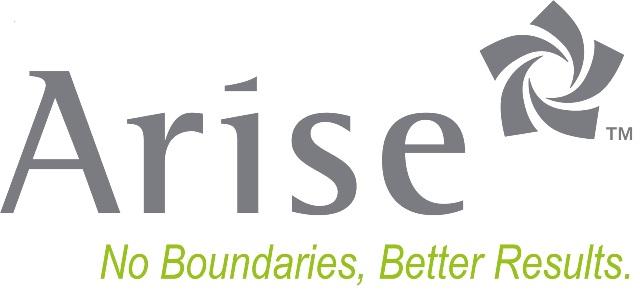Posts By Editorial Team
How to Counter Stereotypes at Work
Editorial Team
A woman’s path to the top is often blocked by five roles men project onto us in the workplace, Falon Fatemi says. “When men see female colleagues as glowering mothers or tempting mistresses, it’s not just demeaning; it stunts our career potential.” In this piece,
Pink Slip to Paradise?
Editorial Team “I’ve never been let go before,” SportsCenter producer Gus Ramsey wrote in a blog post of his layoff after 21 years at ESPN. “I’m still processing it. It sucks. I know everyone goes through it, some multiple times. But it’s new to me. I’m not bitter, not yet anyway.”
“I’ve never been let go before,” SportsCenter producer Gus Ramsey wrote in a blog post of his layoff after 21 years at ESPN. “I’m still processing it. It sucks. I know everyone goes through it, some multiple times. But it’s new to me. I’m not bitter, not yet anyway.”
As I read the news of the layoff at ESPN, it took me back more than two decades when I was a young PR staffer at NBC News in New York. I loved everything about my job – from getting to work alongside network news superstars like Maria Shriver, Jane Pauley and Tim Russert, to working at iconic 30 Rock, just a few floors away from NBC’s Saturday Night Live studio.
Then one day, without warning, a new boss came in and cleaned house. Pack your stuff and leave the building, I was told. I begged him to reconsider. I told him that if he gave me a chance, he wouldn’t regret it.
“Tory,” he said from his big leather chair. “It’s a big world out there. I suggest you go explore it.”
I went home to my tiny apartment, closed the blinds and explored nothing but pints of Haagen Daz for days. I was crushed, scared and angry. Read More
Can you Start Over at 40+?
Editorial Team 13Updated on July 23, 2023
Embracing a Fresh Chapter: Starting Over in Your 40s
The thought of starting over in life, especially when you’re in your 40s, can seem daunting. You might be asking yourself, “What does it take to start over in your 40s?” or “Is it even possible?” This guide aims to provide a fresh perspective on reinventing yourself at this stage in life.
Redefining Midlife: The Reality of Career Changes
Contrary to popular belief, career exploration isn’t exclusive to the younger generation. In fact, according to an Indeed survey, the average age of career changers is 39. This demonstrates that a significant number of individuals choose to make significant career shifts when they’re on the brink of or have stepped into their 40s.
Additionally, a longitudinal study by the Bureau of Labor Statistics found that Baby Boomers held an average of 11.7 jobs from ages 18 to 48. This trend of job-hopping continues to rise, especially among millennials. It’s clear that shifting careers and exploring new professional avenues has become increasingly common, irrespective of age.
Inspiring Transitions: Successful Midlife Career Changes
The concept of starting over in your 40s might seem intimidating, but there are numerous success stories of individuals who’ve done just that and achieved remarkable success. One such example is Falguni Nayar, the founder of India’s leading cosmetics and personal care brand, Nykaa.
She left her role as a managing director and became an entrepreneur at the age of 49. Another is Arianna Huffington, who founded the globally popular news website, The Huffington Post, at 55. These are clear indications that it’s never too late to chase your passion and embark on a new professional journey.
Addressing Midlife Job Dissatisfaction
Research shows that many people, even those with seemingly perfect careers, grow dissatisfied with their jobs in their mid-40s. They may feel regret over past choices or feel stuck in a rut. But it’s crucial to view this dissatisfaction not as a crisis but as an opportunity for growth and reinvention. As philosopher Kieran Setiya suggests, reflecting on one’s professional journey and making informed choices for the future can pave the way for a more fulfilling career.
Facing the Fear: Is 40 Too Old to Start Over?
Contrary to popular belief, turning 40 is not an expiry date for new beginnings or drastic life changes. On the contrary, your 40s could be the perfect launchpad for initiating a fresh chapter in your life, replete with new opportunities, challenges, and experiences. This period of life often brings a unique blend of wisdom from past experiences, a well-established network, and, typically, a degree of financial stability – all critical factors that can support a new start.
The truth is, starting over at 40 is not just feasible; it’s a promising proposition. Armed with past experiences and the wisdom they impart, individuals in their 40s are often better equipped to handle the challenges that come with starting over.
So how can you effectively navigate this process of starting anew in your 40s? Here are some actionable tips that can help:
- Self-Assessment: This is the perfect time to reassess your strengths, weaknesses, passions, and aspirations. Understanding yourself better can help you make more informed decisions about your next steps. There are numerous free online tools such as the 16 Personalities test and the VIA Character Strengths Survey that could be useful in this journey of self-discovery.
- Lifelong Learning: Embrace the idea of continuous learning. Be it taking an online course or attending a workshop, there are endless resources to help you acquire new skills or expand your knowledge base. Websites like Coursera, LinkedIn Learning, and Udemy offer a variety of courses across different fields.
- Financial Planning: Starting over might mean making some financial adjustments. Consider seeking advice from a financial advisor or using online resources such as Investopedia to get a grip on your financial planning.
- Networking: Leverage your existing network and constantly look for opportunities to expand it. Platforms like LinkedIn can be incredibly beneficial in making new connections and exploring opportunities.
- Self-Care: Prioritize your health, both physical and mental. Regular exercise, a balanced diet, and adequate rest can go a long way in ensuring you’re in the best shape to take on new challenges. Websites such as Mindful can provide useful tips on maintaining mental well-being during this transition period.
Understanding What it Takes to Start Over in Your 40s
Harnessing the Right Mindset: The Prerequisites for Reinventing Your Life in Your 40s
The journey to starting afresh in your 40s necessitates a certain set of traits: resilience, adaptability, and the courage to tread beyond the boundaries of your comfort zone. Coupled with a receptive mind, these qualities form the foundation for a fulfilling life transition. But equally important is the acceptance of change and a commitment to making conscious decisions that align with your life goals.
But what does it mean to be resilient, flexible, open-minded, and how do we cultivate these traits? And what steps can we take to make thoughtful choices that lead to the life we want to lead?
- Building Resilience: Resilience isn’t about avoiding challenges; it’s about facing them head-on and learning to bounce back. One way to build resilience is by maintaining a positive mindset, even in the face of adversity. Resources such as the American Psychological Association’s guide to building resilience can provide useful strategies.
- Cultivating Flexibility: Being flexible means adapting to new circumstances without undue stress. This might involve changing career paths, learning new skills, or adjusting personal routines. Consider embracing practices such as mindfulness or yoga to improve your mental flexibility. Websites like Headspace offer guidance on mindfulness techniques.
- Fostering an Open Mind: Keeping an open mind can fuel personal growth and open up new opportunities. Cultivate this trait by continually seeking new experiences, embracing diverse perspectives, and remaining receptive to learning. TED Talks are a rich source of inspiring ideas that can broaden your horizons.
- Accepting Change: Change is inevitable and often the only constant when starting over. Learning to accept change rather than resisting it can make the transition smoother. Online platforms such as Calm offer meditation techniques that can help in coping with change.
- Making Deliberate Choices: Every choice you make paves the way for your future. Thus, it’s crucial to make decisions consciously, keeping in mind their long-term implications. Techniques such as journaling or seeking a mentor’s guidance can help in making informed choices. Check out Mentorly for connecting with mentors across various fields.
As you navigate the path of starting over in your 40s, remember that it’s not just about the destination; the journey itself is a rewarding process of self-discovery and growth. Armed with resilience, flexibility, an open mind, acceptance of change, and thoughtful decision-making, you can successfully steer your life in a fulfilling direction.
Starting Over in Your 40s: The Reality of Financial Challenges
Financial Planning for a Fresh Start: Overcoming Financial Obstacles in Your 40s
Contemplating a fresh start in your 40s often brings with it the specter of financial uncertainty. The fear of potentially starting over at 40 with limited funds or even no money is a daunting prospect. However, it’s important to remember that this is a situation faced by many and, with strategic planning and wise decision-making, it is a hurdle that can be overcome.
Here are some practical strategies to conquer financial challenges when starting anew in your 40s:
- Budgeting: A well-thought-out budget is the cornerstone of financial planning. It allows you to understand your income and expenditure better and plan accordingly. Free online tools such as Mint can help you create and manage your budget effectively.
- Reducing Expenses: Assess your current lifestyle and consider making certain sacrifices to cut down on unnecessary expenses. This could include downsizing your home, reducing dining out, or minimizing entertainment costs. Websites like Frugal Living offer numerous tips on how to live frugally without compromising on quality of life.
- Increasing Income: Look for alternative sources of income. This could be a part-time job, freelancing, or even turning a hobby into a business. Websites such as Upwork and Fiverr offer a platform to find freelance work in a wide range of fields.
- Investing Wisely: If you have savings, consider investing wisely to generate passive income. Remember, the key to successful investing is diversification and understanding the level of risk you can afford. Websites like Investopedia offer valuable insights for novice and seasoned investors alike.
- Seeking Professional Advice: Consider consulting with a financial advisor to help you navigate through your financial concerns and plan for your future. Many advisors offer free initial consultations, so don’t shy away from seeking help.
- Learning About Personal Finance: Equip yourself with knowledge about personal finance. This will help you make informed decisions about your money. Websites like Khan Academy offer free courses on personal finance.
Starting over in your 40s with financial challenges is not an insurmountable task. With strategic financial planning, it’s possible to navigate through the initial hurdles and pave the way to financial stability. After all, many successful transformations began with facing and overcoming challenges head-on.
Exploring Careers to Start at 40 Without a Degree
Unlocking New Career Avenues: Starting Over at 40 Without a Degree
The fear of changing careers at 40, compounded by the lack of a relevant degree, can seem overwhelming. However, it’s essential to remember that the career landscape is diverse and offers numerous opportunities that don’t necessitate a specific degree. Fields like sales, digital marketing, real estate, coding, and graphic design are just some examples. What truly counts are your transferable skills, life experiences, and willingness to learn and adapt.
Here are some strategies to explore new career opportunities at 40, even without a degree:
- Identify Your Transferable Skills: These are skills you’ve acquired over the years that can be applied to a new job or industry. For example, communication, problem-solving, and leadership are valuable in many fields.
- Leverage Your Life Experiences: Your experiences can give you a unique perspective and advantage in many fields. Consider how your experiences have shaped you, what you’ve learned from them, and how they can be applied in a new career.
- Invest in Lifelong Learning: Continuous learning keeps you competitive. Platforms like Coursera and edX offer a wide range of online courses in various fields. Some offer professional certifications that can bolster your credentials.
- Network: Networking is a powerful tool in exploring new career opportunities. Attend industry events, join online forums, and connect with people in your desired field. Websites like Meetup can help you find relevant networking events.
- Consider Freelancing: Freelancing or consultancy can be a great way to transition into a new career field. Websites like Upwork and Fiverr can help you get started.
- Seek Career Counseling: A career counselor can provide personalized advice based on your skills, interests, and experiences. You can find certified career counselors through platforms like The National Career Development Association.
Starting a new career at 40 without a degree isn’t an obstacle; it’s an opportunity to leverage your unique skills and experiences in new, fulfilling ways. With the right mindset, continuous learning, and a proactive approach, the path to your dream career is within reach.
Making a Successful Transition: How to Start Over in Life at 40
Charting a New Path: Keys to a Successful Transition at 40
Embarking on a journey to start over in your 40s can be as thrilling as it is challenging. It invites introspection, identification of passions and strengths, and the creation of a tailored plan that aligns with your vision. Reaching out for guidance, making the most of your existing connections, and committing to continuous learning are essential steps in navigating this life-altering shift.
Here are some strategies to guide your successful transition:
- Self-exploration: Take time to delve deep into your interests, values, and skills. Identify what truly resonates with you and aligns with your vision for the future. Online tools like 16Personalities can offer valuable insights into your personality traits and potential career paths.
- Leveraging Your Network: Reach out to your existing connections – personal and professional. They can provide valuable insights, opportunities, and support as you embark on this new journey. Platforms like LinkedIn are perfect for networking and discovering opportunities.
- Seeking Mentorship: A mentor can provide advice, guidance, and perspective based on their own experiences. They can be a sounding board for your ideas and plans. Websites like SCORE offer free mentorship for individuals starting anew.
- Building a Personal Brand: Develop a strong personal brand that communicates your strengths, skills, and passions to potential employers or clients. Tools like Canva can help you create professional digital content for your personal brand.
- Lifelong Learning: Stay competitive by continually updating your skills and knowledge. Online learning platforms like Coursera or edX provide courses across various domains.
- Professional Advice: Consider seeking help from a career coach or counselor to get personalized advice and guidance. The International Coach Federation can help you find certified career coaches.
- Creating a Plan: Map out a clear, actionable plan to guide your transition. This should include your goals, steps to achieve them, and potential obstacles. Project management tools like Trello can help you organize and track your progress.
Starting over in life at 40 can be a transformative experience, opening up avenues to a more fulfilling life. By exploring your passions, building on your strengths, and strategically planning your path, you can successfully navigate this transition and achieve your dreams.
Check out other articles by best-selling authors:
Dawn Rasmussen – Top Five Questions About Resumes Answered
Sunny Lurie – Eight Proven Strategies to Open the Door to a Vibrant New Career
Stacia Pierce – How to Search for a Job During the Holidays
Dawn Quesnel- Helpful Hints for Job Seekers
Stacia Pierce – Conceit vs. Confidence
How to Overcome the Fear of Failure? 10 Proven Strategies Explained
Editorial TeamBy Editorial Team | Updated on July 27, 2023
Breaking Down Fear of Failure: Here’s What You Need to Know
We’ve all had that sinking feeling in our stomachs, right? That moment when we’re scared of messing up or not living up to what’s expected of us. This worry, known as ‘fear of failure’, is not just about stressing over small mistakes. It’s actually a big deal that can stop us from chasing our dreams and being our best selves. The experts from the American Psychological Association tell us that this fear can seriously get in our way of doing well.
Read More60+ Needles in My Face
Editorial Team 6As New York City shut down, this is my calm in any storm. Acupuncture is my quiet.
It’s the only hour where I’m fully awake and completely still. No tv, no talking, no texting, no thinking, nothing but total calm.
Flexible Work-From-Home Opportunities with Arise Virtual Solutions
Editorial Team 2Updated on July 18, 2023
Understanding Arise Virtual Solutions
Arise Virtual Solutions, a Forbes recognized company, has become a game-changer in the realm of remote work, offering an array of flexible work-from-home opportunities that cater to diverse skillsets.
As an industry leader in virtual business process outsourcing (BPO), Arise has fostered a unique platform that connects Fortune 500 and other large companies with a network of small businesses, run by people like you, using innovative technology and crowd-sourcing.


